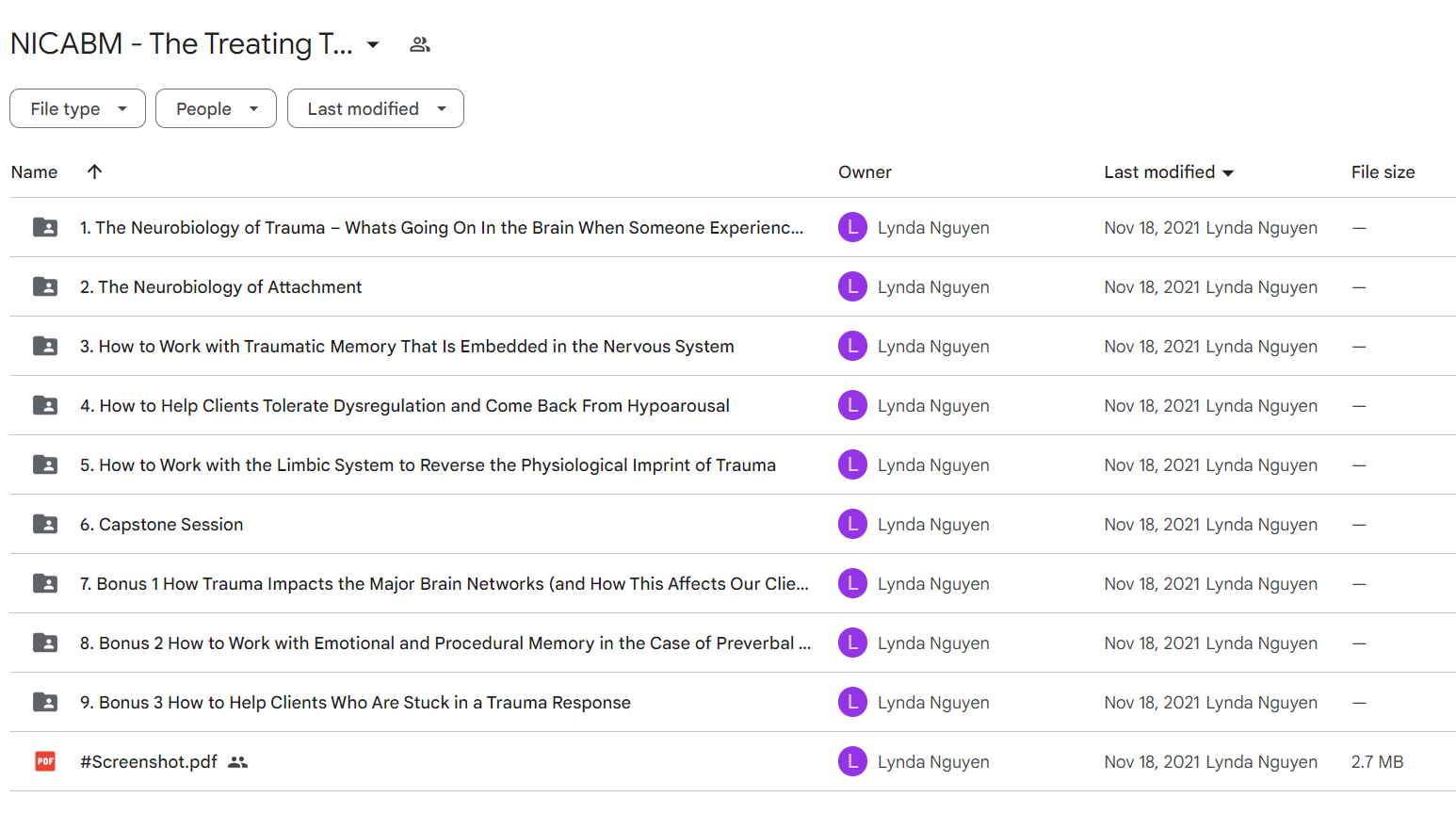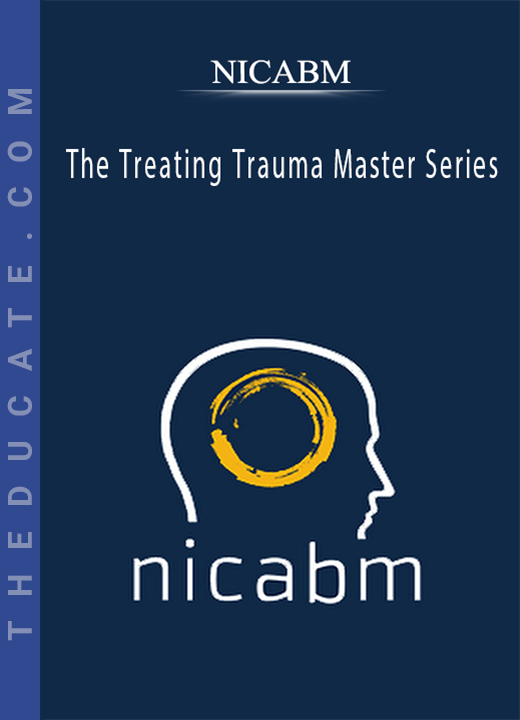Description

NICABM – The Treating Trauma Master Series
10 CE/CME Credits or Clock Hours are available for purchase at checkout.
Click HERE to get information about CE/CME credits and clock hours as well as speaker disclosures
Trauma is complicated and nuanced . . .
. . . but promising clinical research and evidence-backed strategies can lead our practice in new directions.
That’s why we’ve developed an advanced program that gathers all the latest information on the treatment of trauma.
HERE’S HOW IT WORKS
In each one-hour module, the experts unpack the most important ideas, strategies, and applications for treating trauma.
When you register for a Gold Subscription, you get downloads of each module to watch at any time. Plus, you’ll get additional application sessions, bonus content, professional transcripts, and more.
And all of the content is yours to keep forever.
INTRODUCING THE TREATING TRAUMA MASTER SERIES

THE NEUROBIOLOGY OF TRAUMA – WHAT’S GOING ON IN THE BRAIN WHEN SOMEONE EXPERIENCES TRAUMA?
BESSEL VAN DER KOLK, MD PAT OGDEN, PHD
RUTH LANIUS, MD, PHD DAN SIEGEL, MD STEPHEN PORGES, PHD
- How to Work with Dissociation and Shift a Client’s Reaction to Trauma
- The Brain Science Underlying Neurobiological Shut-Down
- Two Hormones That Fuel a One-Two Punch When Traumatic Memories Are Forming
- The Critical Part of the Brain Stem Impacted During Trauma
- How to Help Clients Release Traumatic Memory Trapped in the Body
- How the Midbrain Holds the Key to the Freeze Response
- What posture reveals about a history of trauma, and how to work with it in the healing process

HOW TO WORK WITH TRAUMATIC MEMORY THAT IS EMBEDDED IN THE NERVOUS SYSTEM
PETER LEVINE, PHD PAT OGDEN, PHD
BESSEL VAN DER KOLK, MD
- How the Nervous System Gets Tricked into Thinking Trauma Is Happening in the Present
- The Core Problem with Focusing on a Client’s Traumatic History
- How to Help Clients “Unlearn” Their Nervous System’s Response to Trauma
- What Can Go Wrong When We’re Helping a Client Come Out of a Dissociated State
- How Trauma Derails the Time-Keeping Part of the Brain (and One Way to Bring It Back)
- The One Key Factor That Can Make Traumatic Memory Overwhelming (and How to Work with It)

HOW TO HELP CLIENTS TOLERATE DYSREGULATION AND COME BACK FROM HYPOAROUSAL
STEPHEN PORGES, PHD BESSEL VAN DER KOLK, MD
PAT OGDEN, PHD RUTH LANIUS, MD, PHD
- How to Bring a Client Back from a State of Hypoarousal
- How to Help Clients Calm Their Bodies and Reengage the Thinking Brain
- How to Know Whether a Client’s Dysregulation Is a Symptom of Bipolar Disorder or Trauma
- How to Help Clients Tolerate Distress After Trauma
- The Critical Difference in the Brain Between Processing Trauma and Reliving Trauma
- What Happens in the Body During Hypoarousal

HOW TO WORK WITH THE LIMBIC SYSTEM TO REVERSE THE PHYSIOLOGICAL IMPRINT OF TRAUMA
PAT OGDEN, PHD PETER LEVINE, PHD
BESSEL VAN DER KOLK, MD RUTH LANIUS, MD, PHD
- Why Targeting the Limbic System Can Make Our Interventions More Effective
- How to Tell When Talk Therapy Could Be Keeping Your Client Stuck in Trauma
- How to Use Movement to Help A Client’s Body “Unlearn” Its Adaptation to Trauma
- How to Use Limbic System Therapy to Reverse Feelings of Powerlessness After Trauma
- What to Look for in a Traumatized Client’s “Movement Vocabulary”
- One Key Approach to Use with Clients Who Are Unable to Verbalize Their Trauma
- How Past Trauma May Hurt a Client’s Ability to Protect Themselves from Future Trauma (and How to Break the Cycle)

THE NEUROBIOLOGY OF ATTACHMENT
DAN SIEGEL, MD PAT OGDEN, PHD
RUTH LANIUS, MD, PHD ALLAN SCHORE, PHD BESSEL VAN DER KOLK, MD
- The Common Brain “Bias” That Could Lead to Misattunement with Your Client
- How to Help a Client Stay Emotionally Connected – Even When They’re Dysregulated
- One Powerful Workaround for Fostering Secure Attachment with a Client Who Has Never Felt Safe with Another Person
- How to Sidestep the “Safety Miscue” That Often Comes Up with Traumatized Clients
- What Part of the Brain Develops First (and Why That Is So Important When It Comes to Trauma)
- The Latest Developments in How a Mother’s Trauma Impacts the Developing Baby in Utero
- Why Connecting with the Right Brain is Key to Regulation







8 reviews for NICABM – The Treating Trauma Master Series
There are no reviews yet.